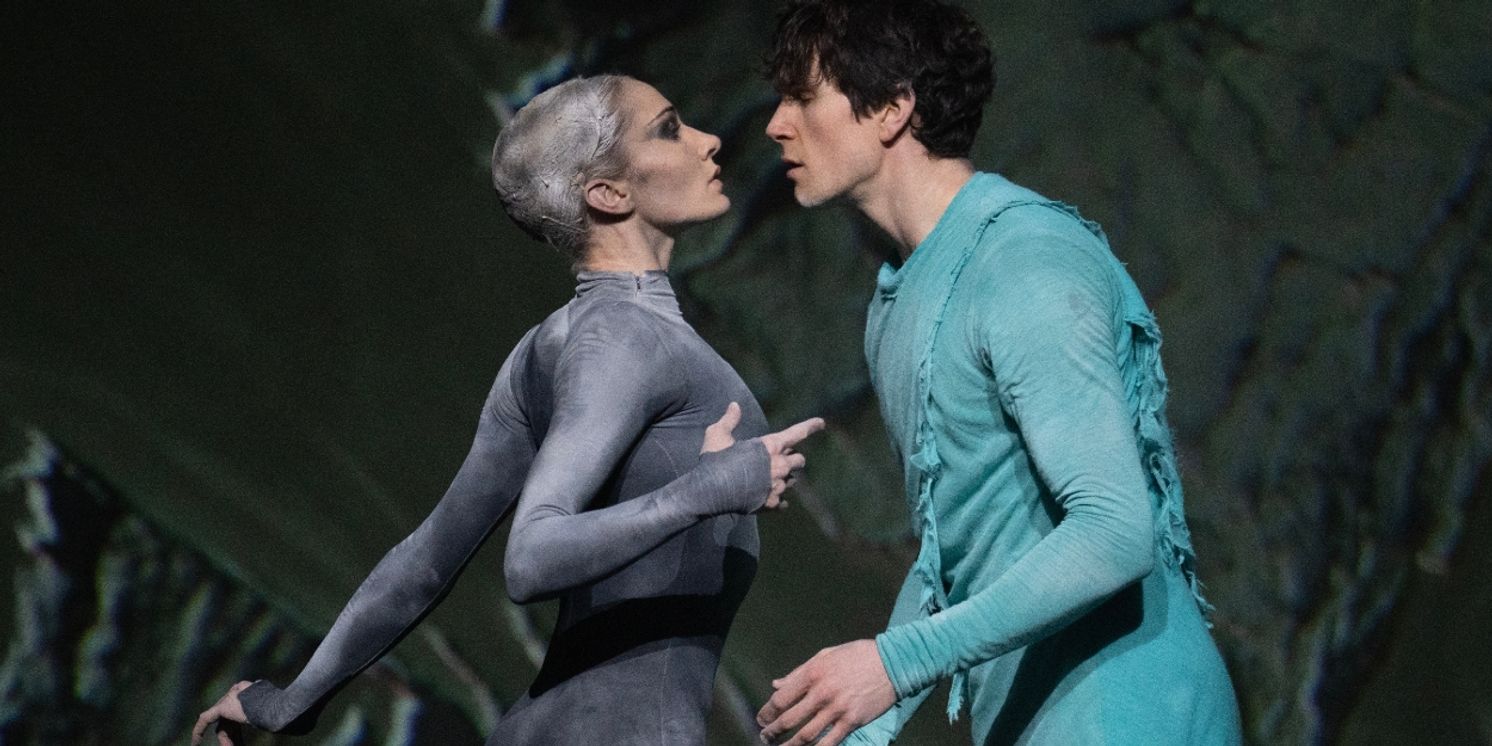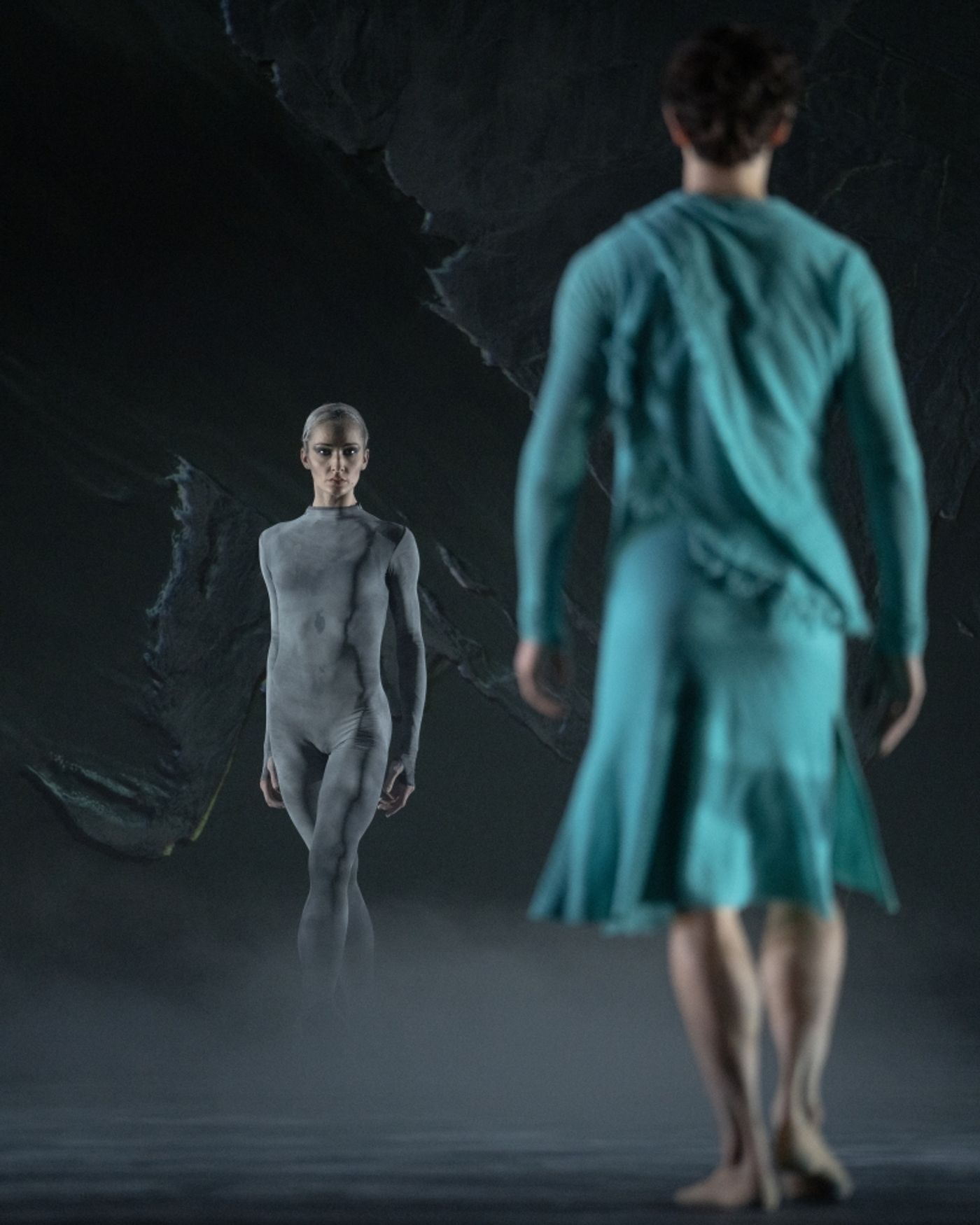Review: THE DANTE PROJECT, Royal Opera House
A monumental reinvention of Dante's vision returns to the London stage

![]() Dante's Divine Comedy is an iconic work of Italian literature, a narrative poem which imagines the world of the afterlife as seen through a medieval world view. Begun in c1308 and completed by the author's death in 1321, Divine Comedy is a powerful piece which lends itself to all sorts of creative interpretations.
Dante's Divine Comedy is an iconic work of Italian literature, a narrative poem which imagines the world of the afterlife as seen through a medieval world view. Begun in c1308 and completed by the author's death in 1321, Divine Comedy is a powerful piece which lends itself to all sorts of creative interpretations.
Wayne McGregor's production for the Royal Opera House was first staged in 2021, and now makes a much anticipated return to the stage. It is divided into three parts - Inferno (Hell), Purgatorio (Purgatory), and Paradiso (Heaven), using the Catholic view of the soul's journey to God.
It is an interpretation which is crowded with characters and symbolism, and although the programme does give some background to the various scenes and situations, you may need prior knowledge of the original piece to be able to identify who's who.
Dante himself (William Bracewell), with Virgil (Gary Avis) as his guide through Inferno and Purgatorio, then Beatrice (Fumi Kaneko), the lost love of his life, is the interpreter and observer of what we see, whether chalk-blotched sinners, regretful romances (Francesca and Paulo portrayed by Francesca Hayward and Matthew Ball), or the souls of the blessed.
Thomas Adès provides a potent and varied score, influenced by Liszt in its early stages, utilising chants from a synagogue in Jerusalem, and finally reaching the wordless soaring of a heavenly choir. There is both discordance and beauty in the score, which is reflected by the movement on stage.
In assigning Virgil his guide on this imaginary trip, Dante underlines a direct link between his own poetry and that of the Roman heroic age and the Aeneid. They are often mirrors of each other, which is true of the camera obscura effect of the set of Inferno, where mountains and dark places appear inverted on stage but in their true form when you gaze upward.

Photo credit: Andrej Uspenski
In Purgatorio, a moving section reunites Dante and Beatrice as children before allowing them the repeat of their flowering love as adults. She was his muse, his inspiration, and sadly died far too young. In death, in Dante's work, she is a figure of divine grace, which contrasts sharply with the thieves and deviants he encounters in Inferno.
Tacita Dean's design comes into its own in Paradiso, with projected images which suggest the journey through the planets while keeping the focus on the redeemed and the repentant; I also appreciated her tree of life in Purgatorio which subtly changes colour as the second act progresses. The lighting design by Lucy Carter and Simon Bennison is evocative and memorable throughout, building to an effective and moving conclusion.
The Dante Project is fierce yet tender, and if the movement sometimes falters, or the story is lost in an assumption audiences are intimately familiar with Divine Comedy, it doesn't always matter. The technical aspects are superb and Adès's score, which would work just as well performed in concert form, is wide-ranging and deeply ambitious.
It may not need a second lengthy interval between Purgatorio and Paradiso, but if you wish to watch the work straight through without breaks, it is set to become available again in its 2021 production on the Royal Opera House streaming service.
I enjoyed the sensuality and power of the movement in McGregor's choreography, making this evening a tour de force of intriguing energy and vibrant bravado.
The Dante Project is at the Royal Opera House until 2 December 2023.
Photo credit Andrej Uspenski
Reader Reviews
Videos

